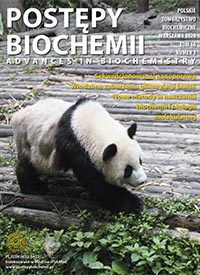Ketogenic diet â mechanism of action and perspectives for the use in the therapy: data from clinical studies
DOI:
https://doi.org/10.18388/pb.2020_342Abstract
Ketogenic diet is a high fat and very low-carbohydrate nutritional approach that induces increased production of ketone bodies, which serve as an alternative to glucose energetic substrates. Since almost a century ketogenic diet has been used in the therapy of refractory epilepsy, especially in children. Because of the pleiotropic effect of ketogenic diet on physiology, including inflammation, oxidative stress, energy balance and signaling pathways, in recent years scientists have been intensively exploring the use of it in the treatment of other diseases. In the present article current clinical studies regarding the possibility of using the ketogenic diet in the treatment of obesity, diabetes, neurological disorders and cancer has been reviewed alongside with potential mechanisms responsible for the therapeutic effect of ketogenic diet in these diseases. The metabolic processes engaged in nutritional ketosis and practicals aspects of ketogenic dieting have been also discussed
Downloads
Published
Versions
- 2020-12-13 (2)
- 2020-11-02 (1)
Issue
Section
License
Copyright (c) 2020 Advances in Biochemistry

This work is licensed under a Creative Commons Attribution 4.0 International License.
All journal contents are distributed under the Creative Commons Attribution-ShareAlike 4.0 International (CC BY-SA 4.0) license. Everybody may use the content following terms: Attribution — You must give appropriate credit, provide a link to the license, and indicate if changes were made, ShareAlike — If you remix, transform, or build upon the material, you must distribute your contributions under the same license as the original. There are no additional restrictions — You may not apply legal terms or technological measures that legally restrict others from doing anything the license permits.
Copyright for all published papers © stays with the authors.
Copyright for the journal: © Polish Biochemical Society.




